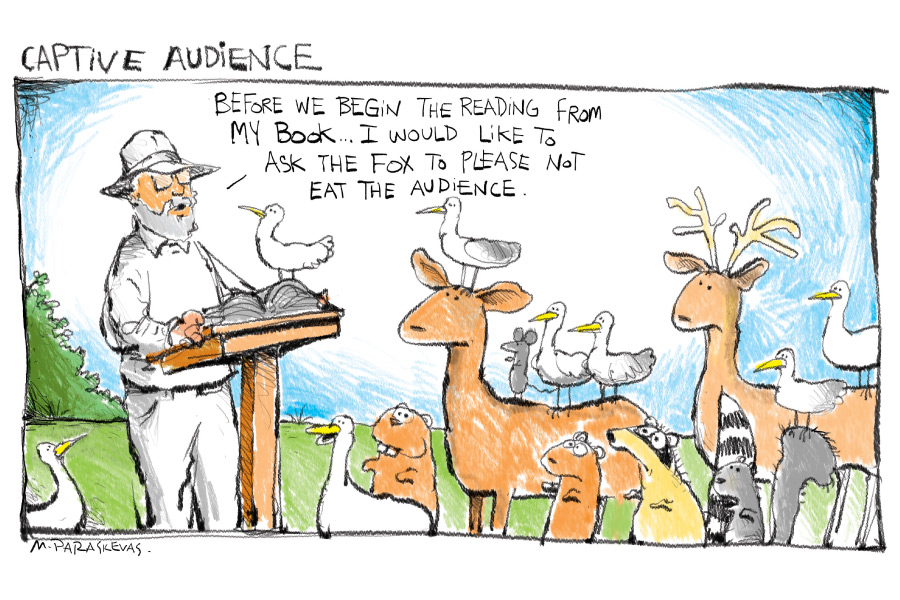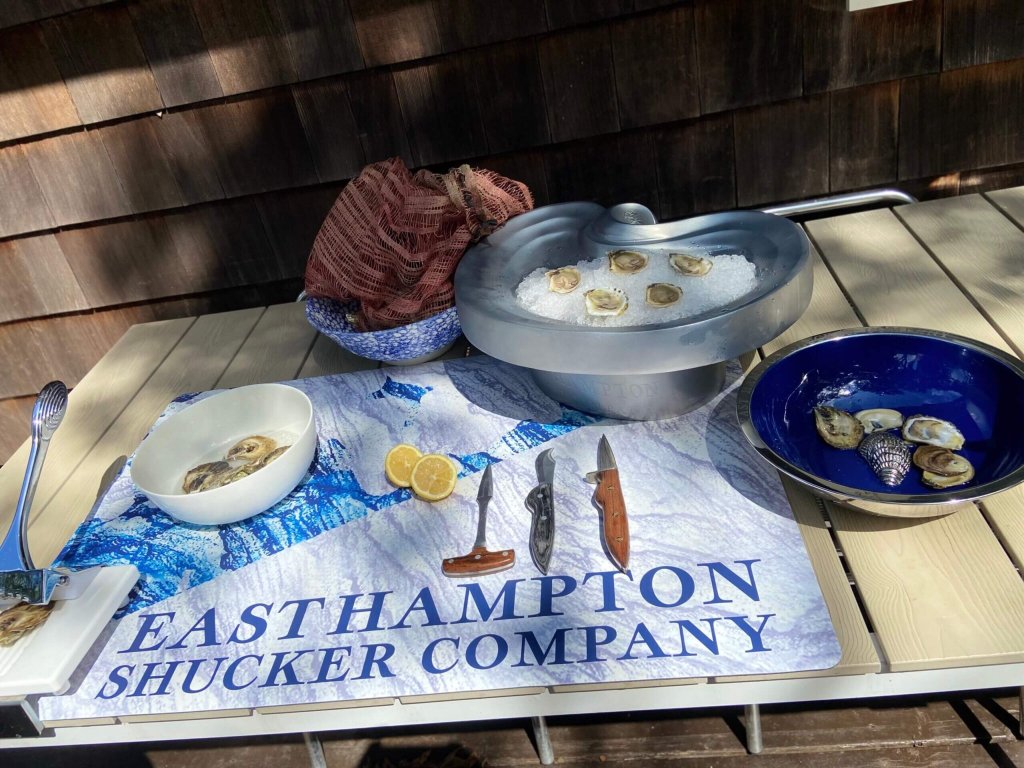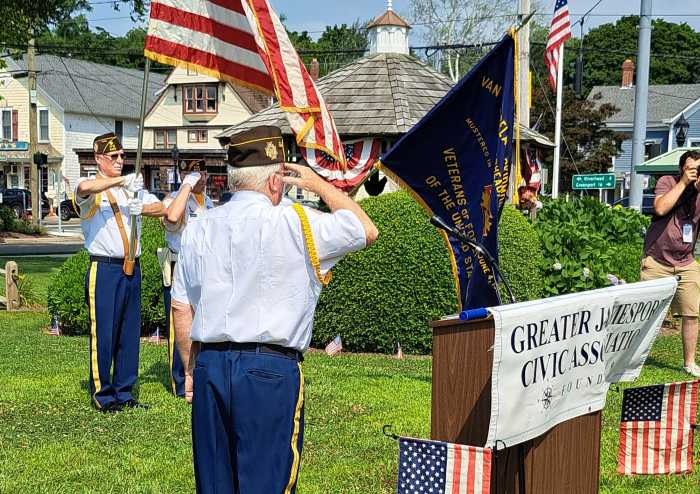In the Hamptons 4Ever: Dan Publishes Fourth Book

In 2008, as I approached my 70th birthday, I got to thinking that as a newspaper publisher and editor, I ought to write all this stuff down. Newspaper publishers, and particularly editors, get to see so much of what is going on in a community, especially if they do it for a long time. I had been doing it for 50 years at that time.
And there are so few people who actually become newspaper publishers and editors. Maybe people would like to know what that is like, especially in the Hamptons, which has gone from being a backwater fishing and farming town where everybody knows everybody, to one of the world’s first-class resorts in an astonishingly short amount of time—all on my watch.
The way to do this, I thought, would be chronologically, from the beginning. But then how would I fit in the people I wanted in the book? The best thing might be to write each chapter about an individual and a particular adventure I had with that individual.
For example, there was the loud, unfriendly shark-fishing charter boat Captain Frank Mundus out at Montauk Harbor, who only went after sharks and nothing else. Other captains, who fished for swordfish or tuna, said that’s not fishing. The fish just come over and you shoot them. Frank said the feeling was mutual. I was 20 years old that first year I published the paper. I was the nice Jewish boy who grew up in New Jersey whose father had bought the drugstore in Montauk. I’d try to sell Frank an ad.
“Well, maybe next year,” I said, as I walked quickly away from his “no.” He was brandishing a gun at the time.
Well, that first book published by Random House, came out, filled with stories about all these people from Mundus right through to Billy Joel. It sold well. The New York Times reviewer praised it. Newsday reprinted the Mundus chapter in its entirety. But it never made the bestseller lists. I was told I didn’t have enough celebrities in it. I told them I knew the celebrities and they were just, well, nice. I found a few stories to tell about them. But there was not a Frank Mundus among them.
That first memoir is still in print, in paperback, available wherever books are sold. In 2010, the second memoir came out, and we called it In the Hamptons Too. A third memoir, filled with more stories about people I knew, came out in 2012. Both are also still in print, in hardcover, from the State University of New York Press.
And now comes In the Hamptons 4Ever, which is officially on sale on August 1, but seems to have begun to appear in bookstores everywhere a bit early.
With all these books, I have held book readings in bookstores and have been on radio and TV promoting them. But in addition, I have had readings of many of these stories at the locations where the action took place. I pack my car up with a microphone and a battery-powered portable amplifier and speaker, a table, a stack of books, a folding chair, bug spray and suntan lotion and a few balloons and a big sign, two-feet-by-three, that has the image of the book cover on it and head out.
I’m a one-man band. I’ve read to crowds of people in the Bridgehampton Starbucks, on the beach in front of the Andy Warhol Compound in Montauk, in front of a particular liquor store in Southampton, by the windmill at Southampton College, in front of a farm in North Sea, at the beach in Amagansett where the Nazis landed and even on the little Sagg Bridge that separates Wainscott from Sagaponack.
When I am on private property I ask for permission ahead of time. When I am on public property, well, I’m a taxpayer and for assemblages of fewer than 50 people you don’t need a permit. They call that freedom of speech.
And so, this summer, I am doing it again. One day you will find me on the eastern shore of Old Town Pond in Southampton, at the site where in 1990 the town buried a time capsule which was to be opened in 2040, but which instead, three years later, somebody dug up and stole. Another day, you will find me at Camp Hero where my buddy John Keeshan and I climbed around amidst all the stuff abandoned at that former military base. People I write about in this edition, among 35 others, are Ira and Ingeborg Rennert, Dr. Oz and John Darden, an African-American friend of mine with whom I played golf and, by putting an ad in the paper with our picture in it advertising “OUR GOAL—To Play Every Golf Course in the Hamptons—We are both WASPS listed in the Social Register,” got to play in a lot of private clubs.
There are also chapters in this new book, for the first time, that are simply stories lifted right out of the pages of Dan’s Papers, because each and every one of them is about something that never happened, but which I hoped people would believe happened. These chapters are about the Hampton Subway, the lions that were imported to eat all the deer on the East End, the big 20-foot-tall steel gas ball in a field in Sag Harbor that, though just a utilitarian place for our power company to store fuel was, in fact, at one time, the canvas upon which a drunk but inspired Jackson Pollock produced his very largest drip painting—quickly painted over in green by the executives at LIPA soon after. You’ll also read the ad we once ran in Dan’s Papers selling the McKenzie Seagull Whistle, which you kept in your beach buggy and, if stuck in the sand, blew into to get teams of seagulls to fly over and push you out.
How will you learn where these readings are? Watch for the ads that appear in Dan’s Papers every week about the readings for the upcoming weeks. The first of them, the kickoff book reading, a normal one in a normal book store, is scheduled for July 29, Friday, at 5 p.m. at BookHampton in Southampton. On Sunday, August 2, at 3 p.m., there will be another kick-off reading at BookHampton in East Hampton.
Some people have told me that these book are much like the series of books written by a British veterinarian named James Herriot, who described what life was like tending to sick animals on farms in the Cotswold around the town where he had his surgery practice.
But I like to think that my books are like the series of memoirs of Winston Churchill, who wrote a series of volumes about his experiences running Britain from 1939 to 1946 during the Second World War. I think he wrote six such books.
But I may be wrong about the number. Anyway, I think of it as a goal.









